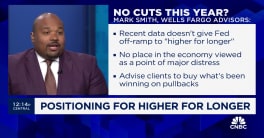Yes, IT systems have sailed through things like Y2K (remember that?) and the leap second on June 30th. But there are bigger challenges. The Federal Financial Institutions Examination Council (FFIEC) has released a Cybersecurity Assessment Tool to aid institutions in identifying risks and assesses their cybersecurity preparedness. The self-assessment is divided into two parts: Inherent Risk Profile and Cybersecurity Mature. Information regarding the assessment tool can be found here.
It's a legal/regulatory/lender "whack-a-mole" out there. The latest is HUD's OIG report against Nova Financial Investment. "NOVA Financial & Investment Corporation's FHA-insured loans with down payment assistance gifts did not always meet HUD requirements."
The industry's MBA has a new partnership with Fannie Mae through which members can access an array of benefits. These include early access to Desktop Underwriter, a reduction in new seller/servicer application fees, a reduction in reactivation fees and more. In addition, MBA recently introduced MBA Health Link - a private exchange offering healthcare and other employee benefits made available through MBA's partnership with Arthur J. Gallagher & Co. - as well as discounted membership in popular industry cooperatives: Capital Markets Cooperative and The Mortgage Collaborative. MBA members can check out these new benefits on the MBA web site. If you are not an MBA member, reach out to Tricia Migliazzo at (314) 497-6999 to learn all that MBA can do for your business.
The MBA sent its July TRID readiness survey out to the top CEOs - with the majority responding to Dave Stevens' questions and providing a good view on TRID readiness.
The Mortgage Action Alliance (MAA) is urging members to support the H.R. 2121, the SAFE Transitional Licensing Act, which would amend the SAFE Mortgage Licensing Act of 2008 to provide a temporary license for loan originators transitioning between federally-insured depositories and non-depositories and across state lines. If the bill passes, states would have to issue a transitional license to individuals already employed by a financial institution and are a registered loan originator. These individual could originate loans for 120 days during the transition period. Click here to take action and support the legislation.
Speaking of the interface between private industry and government, the MBA has asked the CFPB to make Oct. 3 its revised effective date for Truth in Lending Act/Real Estate Settlement Procedures Act Integrated Disclosure and have that date start of a temporary "good faith" implementation and enforcement period. The Credit Union National Association (CUNA) is asking for a Dec. 31 effective date, rather than Oct. 3. The National Association of Federal Credit Unions wants the CFPB to formalize an extended grace period for enforcement. The Community Home Lenders Association says it would request a hold harmless period through the end of the year for good faith compliance efforts with TRID, which is scheduled to take effect on Oct. 3. The National Association of Realtors, which urged the CFPB in May of this year to implement a grace period for those seeking to comply in good faith with the new rules, noted that the August 1 deadline originally set forward came in the midst of the busy summer home buying and selling season and could negatively impact consumers. "NAR believes CFPB should use this authority and establish a trial implementation period from October 3, 2015 to at least December 31, 2015.
CUNA has urged the CFPB to exempt credit unions from certain HMDA regulatory reporting requirements. The proposed HMDA changes include revising the tests for determining which institutions are covered under HMDA and requiring more data points to be required. CUNA has asked the CFPB to allow credit unions to report only the data points required by the Dodd-Frank Wall Street Reform and Consumer Protection Act amendments to HMDA, as only 17 of the 37 new data fields that must be reported are required by the Dodd-Frank Act.
And speaking of the CFPB, "everyone loves to hate their lender." Many would argue that it is human nature to dislike anyone who lends them money, but in this case it seems that the CFPB is continuing to receive complaints - many out there being published - from borrowers.
House Financial Services Committee Chairman Jeb Hensarling is calling for three hearings to consider whether the Dodd-Frank Act has established stability and made the U.S. more prosperous. Damage to economic growth, family finances and "consumer freedom" have resulted from the law, Hensarling said.
The CFPB has released its June 2015 Supervisory Highlights report identifying the illegal practices revealed during the bureau's examinations in the first quarter of the year. The bureau found that some institutions denied or discouraged mortgage applications from consumers because they relied on public assistance income in order to repay the loan. The CFPB also found illegal dual-tracking of foreclosures and loss mitigation applications and illegal runarounds with loss mitigation applications. The report also uncovered that debt collection complaints were disregarded and there were accuracy problems at one or more of the credit reporting agencies. Recent supervisory resolutions have resulted in remediation of $11.6 million to more than 80,000 consumers across all industries.
Relatively recently the Federal Reserve Board, CFPB, FDIC, National Credit Union Administration, Office of the Comptroller of the Currency and Securities and Exchange Commission published an interagency Policy Statement defining standards for assessing the diversity policies and practices of the entities they regulate. The Policy Statement states that the federal agencies will not use their examination or supervisory processes in connection with the Policy Statement and that the use of the statement is voluntary. The Policy Statement includes five sections covering organization commitment to diversity and inclusion, workforce profile and employment practices, procurement and business practices, practices to promote transparency of organization diversity and inclusion and entities' self-assessment.
And don't forget that five federal agencies announced the approval of a final flood insurance rule. The rule implements requirements from the Homeowner Flood Insurance Affordability Act of 2014 (HFIAA) relating to the escrowing of flood insurance payments and the exemption of certain detached structures from mandatory flood insurance purchase requirements, as well as provisions from the Biggert-Waters Act as it relates to force-placed insurance. Lending institutions must escrow flood insurance premiums and fees for loans secured by residential improved real estate or mobile homes that are made, increased, extended or renewed on or after January 1st 2016. Those exempt are institutions that have total assets of less than $1 billion and loans that qualify for a statutory exception. Borrowers will also have the option to escrow flood insurance premiums of fees to borrowers with loans outstanding as of January 1st, 2016. The rule also allows lenders to charge a borrower for the cost of force-placed flood insurance coverage starting the date the borrower's coverage lapses or becomes insufficient.
And recently the U.S. government has expanded eligibility for PACE (Property Assessed Clean Energy) loans for all HUD-financed apartments. The purpose of the program is to provide energy efficient and eco-friendly building designs, allowing for more affordable ways to implement "green" features. Eligible building owners can take out 100 percent financing for energy improvements, such as efficient HVAC systems, solar panels, tankless water heaters, etc. The program terms include no down payment, tax-deductible interest, longer terms, fixed rate and transfers with building upon sale. Eligibility is dependent upon program availability in your city or state, financial standing and type of housing. Only a few states currently offer PACE programs, including California and Connecticut.
How sensitive is the housing market to rising interest rates? That is the question now, isn't it? I would say that it depends on who you ask, and when you ask it, so let's let Wells Fargo ask and answer their own question. "We expect the Fed to begin to nudge the federal funds rate higher in late summer or early fall. Mortgage rates will likely increase ahead of any change in policy rates, but again the timing and magnitude of any increase remains an open question. Mortgage rates typically track the yield on the 10-year Treasury note and that rate is greatly influenced by the expectations for short-term interest rates over the next few years." It's interesting to note what happened just a few years ago when the Fed announced an accelerated end to QE during the spring home buying season. Mortgage rates rose by 115 basis points in less than eleven weeks, causing the homes sales market to virtually collapse. As Wells points out, "Sales of new homes fell 25 percent almost immediately following the "Taper Tantrum" and existing home sales fell roughly 10 percent over the next several months." So it is with no surprise that the answer to their question regarding housing market sensitivity be answered with: Even a modest rise in mortgage rates will restrain demand for new and existing homes. Home sales should still improve in 2015, however, benefiting from stronger job growth and increased household formation.
Is Blackstone beginning to sell its portfolio? Wouldn't that be interesting in terms of supply/demand dynamics? Certainly the demand is there! And certainly Blackstone is much more than a landlord, but the article noted that, "The housing landlord has agreed to sell about 1,300 Atlanta-area residences that don't fit its strategy, which targets communities with higher rents and quality schools, according to Chief Executive Officer John Bartling."
Looking at rates, there isn't much to talk about. On Tuesday fixed-income prices improved, and rates dropped, due pretty much due to a lousy retail sales number here in the States. And this morning we've had the MBA's application numbers (overall -2% with purchase apps -8% and refis actually +4%). We've also taken a look at June inflation figures with the Producer Price Index: +.4%, core at +.3%.
We also saw July's Empire Manufacturing (3.86 - higher than expected). And Janet Yellen has echoed her speech from last Friday: the Fed will act based on data. Is this anything new? Ahead of us are June's Industrial Production and Capacity Utilization numbers, and also later today is the July Beige Book at 2PM EDT. After closing Tuesday at a yield of 2.40% this morning we're at 2.41% and agency MBS prices are worse by a smidge.
Jobs and Announcements
In job news Ellie Mae is continuing to expand is and is looking for a Product Support Analyst-Compliance in Omaha, NE. The Product Support Analyst acts as a mortgage industry specialist relevant to the use and application of Ellie Mae products and services, and will deliver complete resolutions, in a timely manner, and consistently, to address clients' questions and concerns with the user interface, documents, and tools available in the Ellie Mae product. The ideal candidate will have three or more years of mortgage processing, funding, document drawing or underwriting experience, experience using desktop loan origination software applications, be able to communicate effectively via written and spoken language; comprehends problems, urgency, and desired outcome in the absence of perfect information; conscientious listener & analytical; proactive; creative problem solver. For more information please visit EllieCareers.
On the retail production side, OneTrust Home Loans, headquartered in San Diego, CA and privately owned/managed by successful loan originators, is expanding its presence nationally. OneTrust seeks producing Branch Managers and MLOs looking for "a vision and culture that aligns with the ideal of Service is everything! OneTrust is a full service lender/servicer offering the complete array of loan products with limited overlays, attractive pricing, competitive compensation, and compliant systems; leadership does not have layered management, giving Branch Managers the ability to resolve issues locally with dedicated corporate support. This flat leadership model ensures no bog downs on decisions and issue resolution. You, your borrower, and your business partner always have 24/7 secure entry and live access to the file. See what makes OneTrust Home Loans different by having a confidential conversation and tour our technology with the managers of our business development team. Contact Chris Probert (435.252.3982) or Chris Van Arsdale (865.293.0799). For additional information check out OneTrust Tools Video and LoanTown USA to learn more of what OneTrust offers."
In "Opportunity News", a seasoned group of wholesale mortgage veterans with operations in Southern California is looking to join or partner with a stable growing Mortgage Banker. "The group's footprint covers the Western states with the primary impact in Southern California, and includes AEs, managers, underwriters, account managers, and funders. The mortgage banker should be financially stable, focused on customer services, and want to expand their presence in the Western US. If you are a mortgage banker who shares a commitment to providing exceptional client service, contact the Wholesale Group at Team@wholesalemortgageteam. com."







